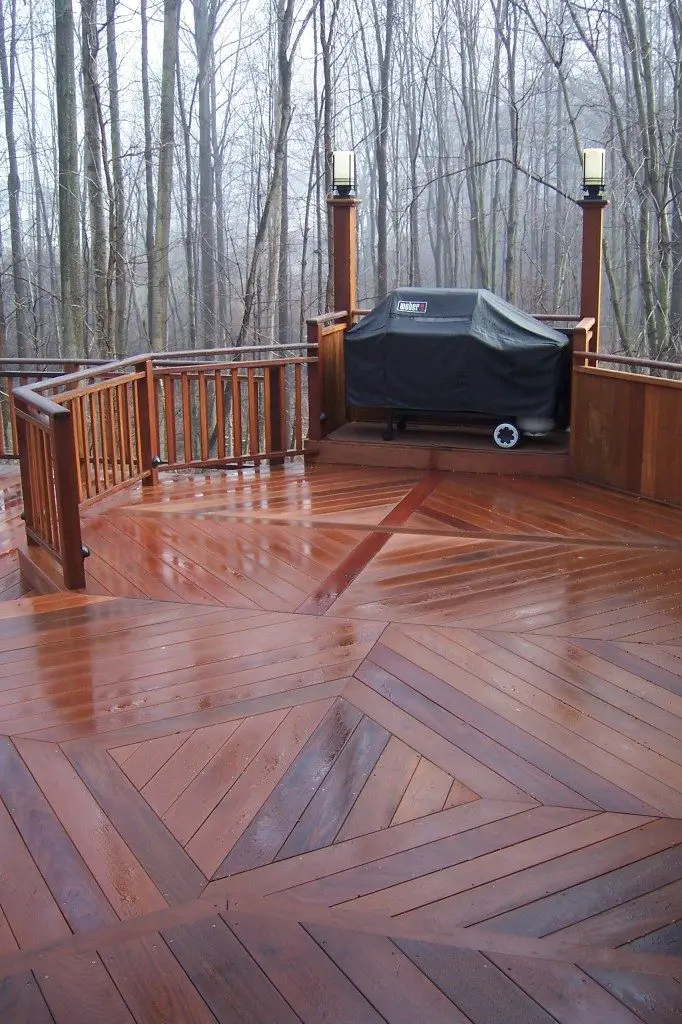Podcast 7
Ask the Builder Podcast 7 Highlights:
- Karen from Texas has some cantankerous soil around her house that's causing cracks
- Corey's got a stunning IPE hardwood deck - what's the best way to clean and seal it?
- Tom has a pergola over his rear deck. The idiot who built it made a big mistake - Easy to solve!
- Tim shares a story about how he was too trusting as a young builder - Listen and save $$$$$. - NOTE: Transcript of this story below.
Podcast Sponsor: Stain Solver - Certified Organic Oxygen Bleach

Stain Solver is MADE in the USA with USA ingredients that are food-grade quality. CLICK THE IMAGE to order some NOW.
Home Improvement and Home Construction Podcast
Photos, Links and Great Stuff:
CALL 1: Karen's Cantankerous Soil
Related Links:
Inject Water Slowly Into Magic Holes to Tame Expansive Clay
Soil Testing for Homes - Get Online Soil Maps for FREE
Expansive Soil Study - AMAZING DOCUMENT - Download and read
Watch this video to see how to tame expansive clay soil:
Call 2: Corey's IPE Deck
Related Links:
Best Deck Cleaner for IPE and All Other Wood & Composite Decks
Deck Sealer Test Results - FREE Comparison photos
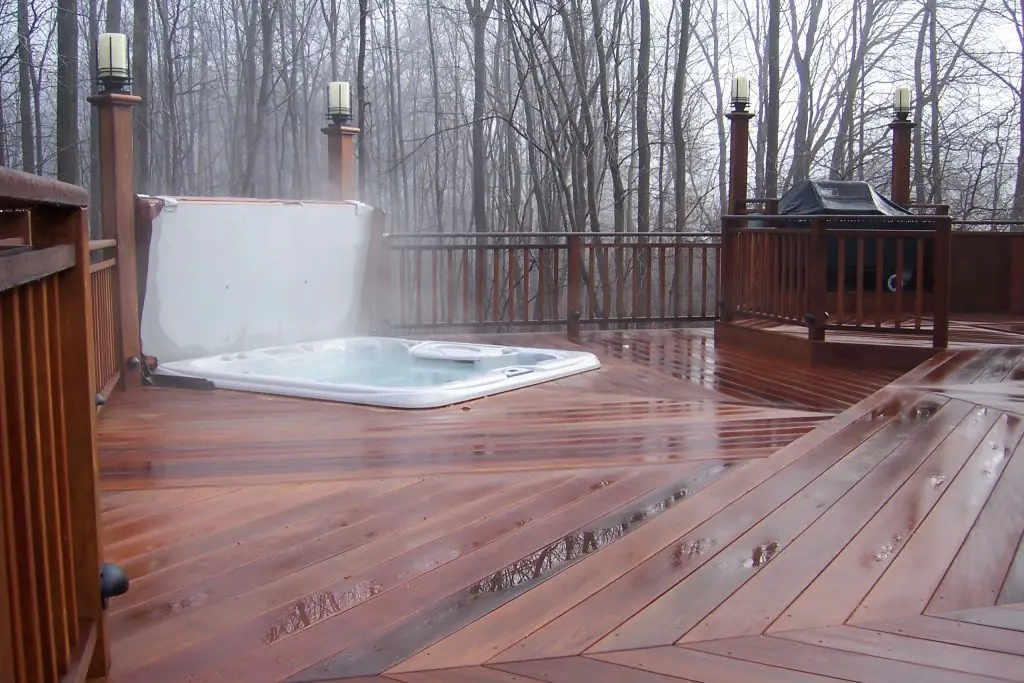
Here's another shot of Corey's IPE deck. How'd you like to be soaking in that hot tub with your soulmate talking about how back in '82 if the coach had put you in the fourth quarter, you'd been state champions. No doubt in your mind! After all, you could throw the pigskin a quarter mile! You would have gone pro, you would have made millions of dollars..... Heck, just watch Uncle Rico say all that and more.
Call 3: Tom's Crazy Pergola Problem Related Links
Pergola Ideas for a Small Patio
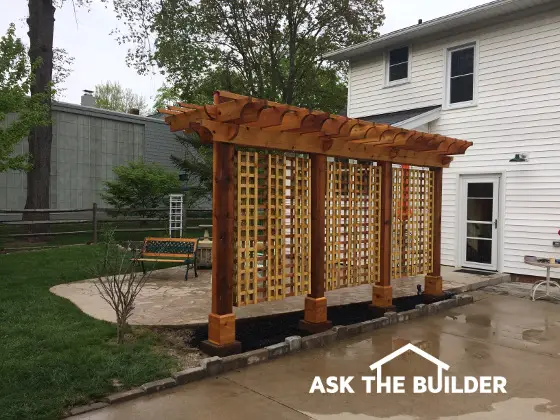
This is a stunning pergola for a small patio built with advice from Tim Carter, founder of AsktheBuilder.com. (C) Copyright 2017 Tim Carter
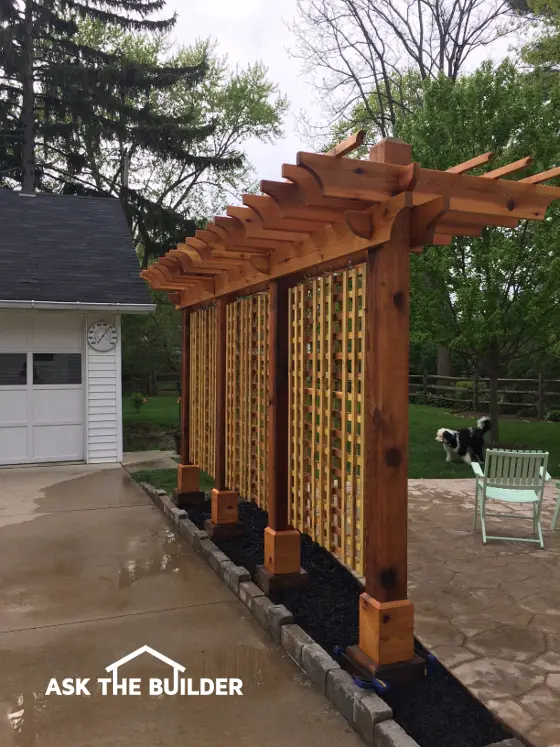
This is a side view of the stunning pergola, built with advice from Tim Carter, founder of AsktheBuilder.com. (C) Copyright 2017 Tim Carter
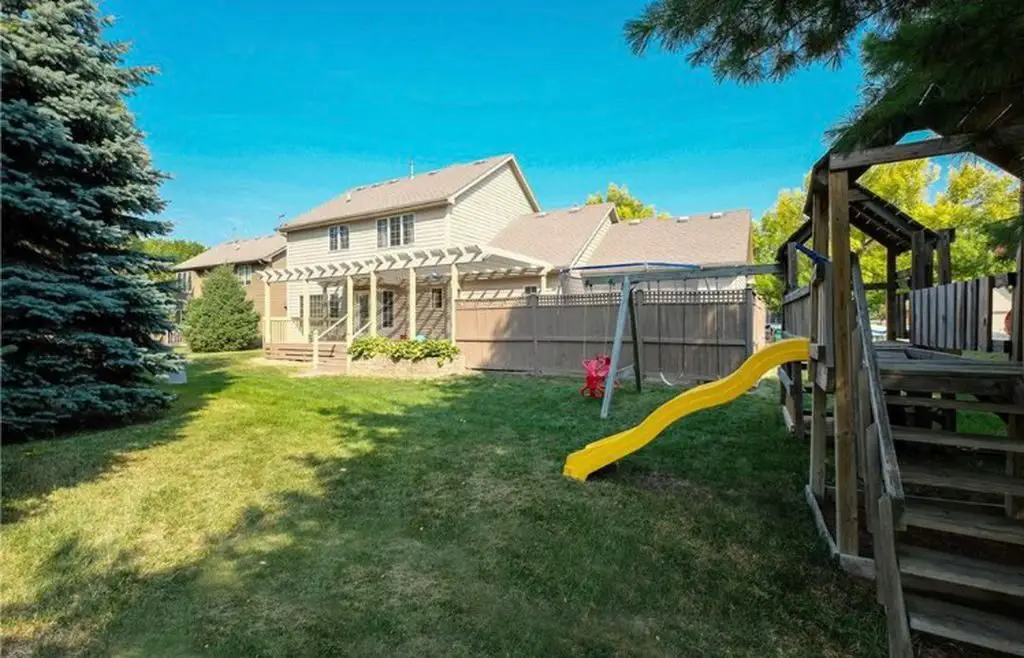
Here's a wide view of Tom's pergola. You can see it's pretty big. You just can't see the problem yet. That's the next photo.
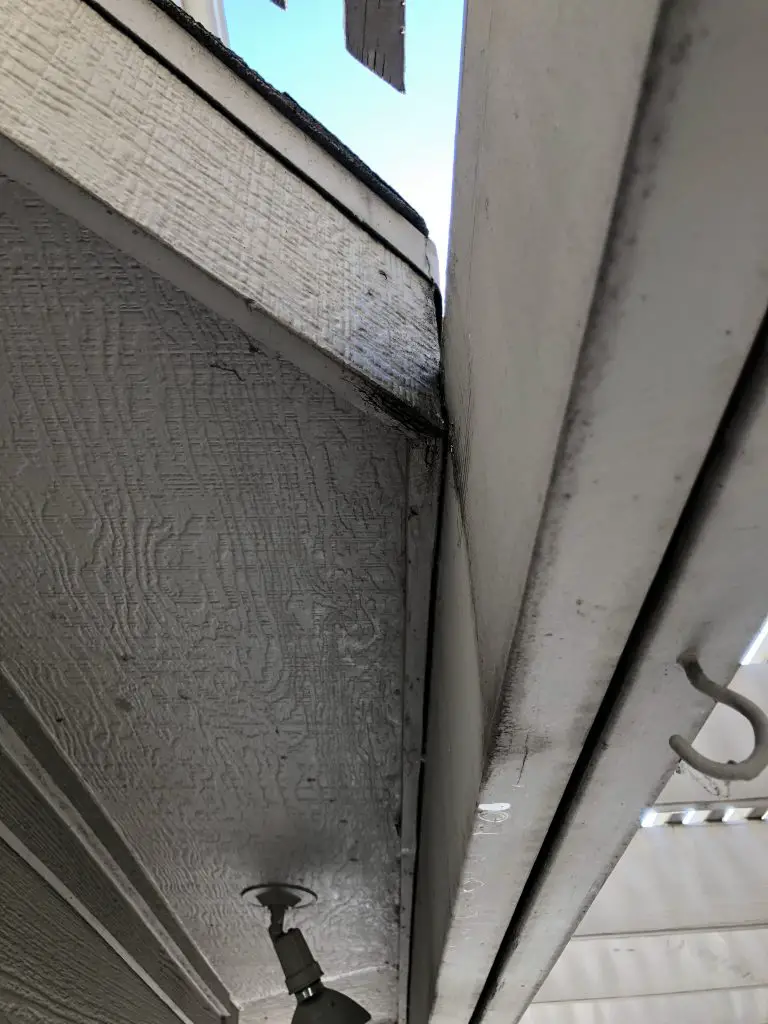
You're looking up at the beam that supports all the pergola rafters. The idiot builder attached it to the house fascia board.
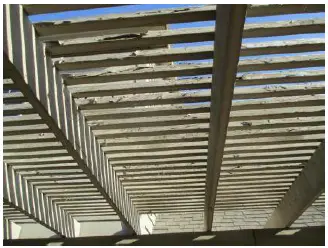
This is what the top of Tom's pergola looks like.
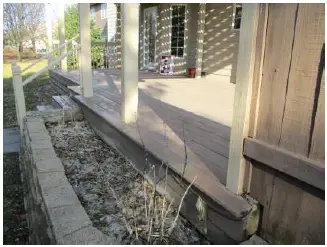
This photo gives you an idea how to solve the problem with the bump-out bay.
Marketing Managers Must Meet Sales Quotas - Anything Goes! Story
I started remodeling homes while I was still in college. I did it as a part-time job working for a man who purchased foreclosed houses, fixed them up and resold them. It’s called flipping now. Back then it was rehabbing.
Like many who had little exposure to building and building products, I simply didn’t know much. My disadvantage was I was still a young man and didn’t have lots of life experience. I was also too trusting. I believed what I was told. I believed sales pitches and sales copy in building product brochures.
Within a year of graduating from college, my lovely wife Kathy and I were the proud owners of a three-bedroom house located at 2865 Minto Avenue in the East Hyde Park suburb of Cincinnati.
We gutted the second floor and part of the rebuild included installing a new bathtub and shower area. I went to the drywall supplier and the man behind the counter said to use magic *green* board drywall. He told me it was waterproof and I had no reason to not believe him.
It was easy to install and I taped and finished the drywall before installing the tile. I did this with water-soluble joint compound I might add!
I assumed tile grout was waterproof as was the ceramic tile. After all, the ceramic tile in the house I grew up in never allowed water to get into the wall. But I had no idea that tile was set in real thick concrete that was on the wall!
I then started to do remodeling work for friends. One couple I met early in my career was Marty and Denise. They hired me to rebuild their bath and I used the same green board drywall thinking it was a great product.
It wasn’t. I think ten years later Marty told me one day that the tile in his shower started to fall off the wall. It turns out the core of the green board drywall was treated with silicone to resist water, but the green paper on top was rotting away. The tile was trying to stick to the green paper and as it rotted, the tile won the battle with gravity.
You see, water does pass through grout in almost all instances. Not much, but often enough to cause problems. Think about how a forceful stream of water in a shower is not much different than you hammering a nail into soft wood.
Each successive water drop that shoots out of the shower head blasts against the grout. This forces a tiny amount of water into the grout if there’s a micro crack between the tile and grout. Each shower drop that hits the grout drives the previous drop deeper into the grout.
Soon, after hundreds of drops, some water has made it to the tile/wall interface.
As I got more experience working in older homes, and especially after having to BEAT OUT old tile and concrete setting beds with a 4-pound hammer, I grew to appreciate the masters of old who used true waterproof concrete to set tile. They would have scoffed at the green board drywall knowing better.
Other companies competed against the green board manufacturers. They knew the old time way of putting concrete on walls was the best way. This is why cement board in 1/2-inch thickness has been on the market for decades. Nail this onto wall studs and use cement-based thinset to adhere your tile to the cement backer board and you’ll not have issues.
I’d just be sure to put a waterproof membrane under the cement board to ensure no water can get to the wall studs or inside the wall cavity. Simple 4-mil plastic works fine for this purpose. Be sure the plastic laps over the flange of the tub or shower so all water that gets behind the cement board makes it down the drain.
Never forget - Do It Right, Not Over!
Subscribe to the AsktheBuilder Podcast
